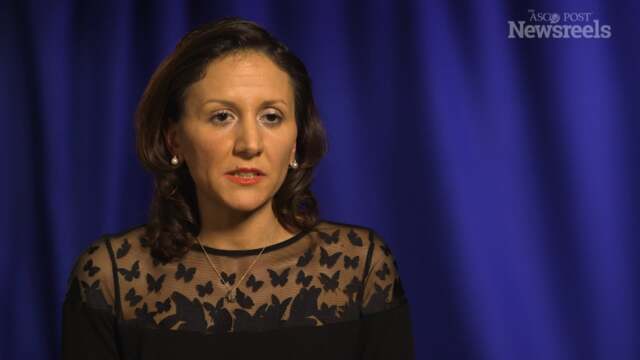Judith Balmaña, MD, PhD, on Metastatic Breast Cancer: Study Results on Lurbinectedin
2016 ESMO Congress
Judith Balmaña, MD, PhD, of Vall d’Hebron University Hospital, discusses the findings of a single-agent phase II trial on the antitumor activity of lurbinectedin in BRCA1/2-associated metastatic breast cancer patients. (Abstract 223O)
The ASCO Post
Teresa Calimeri, MD, PhD, of San Raffaele Hospital, discusses in Italian high-dose methotrexate as a CNS prophylaxis, shown to significantly improve outcome in patients with high-risk diffuse large B-cell lymphoma. (Abstract 908O)
Christopher J. Sweeney, MBBS, of the Dana-Farber Cancer Institute, discusses how this early clinical endpoint will accelerate the development of new therapies for localized intermediate and high-risk prostate cancer. (Abstract 717O)
Mansoor Raza Mirza, MD, of Rigshospitalet, Copenhagen University Hospital, discusses phase III study findings on maintenance therapy with niraparib vs placebo in patients with platinum-sensitive recurrent ovarian cancer. (Abstract LBA3)
Martin Reck, MD, PhD, of the LungenClinic, discusses study findings on pembrolizumab vs platinum-based chemotherapy as first-line therapy for advanced non-small cell lung cancer with a PD-L1 tumor proportion score ≥50%. (Abstract LBA8)
Shou-Ching Tang, MD, PhD, of the Georgia Cancer Center, discusses findings on a novel peptide–paclitaxel conjugate that crosses the blood-brain barrier and shows activity in breast cancer patients with recurrent central nervous system metastases. (Abstract 324O)





